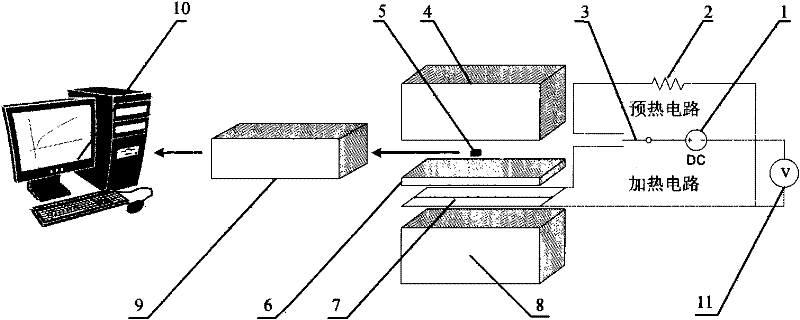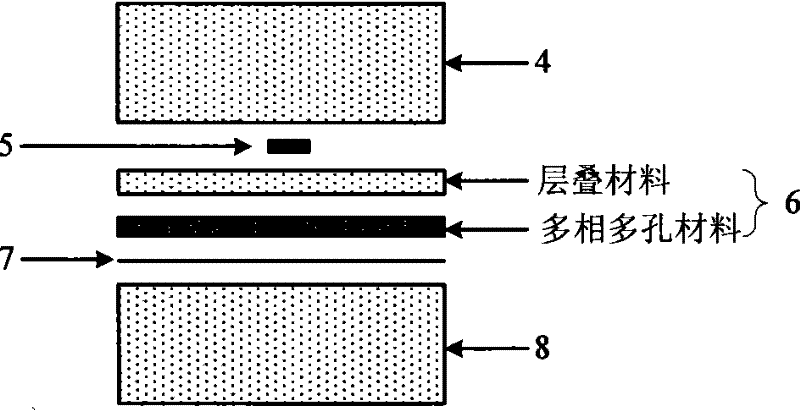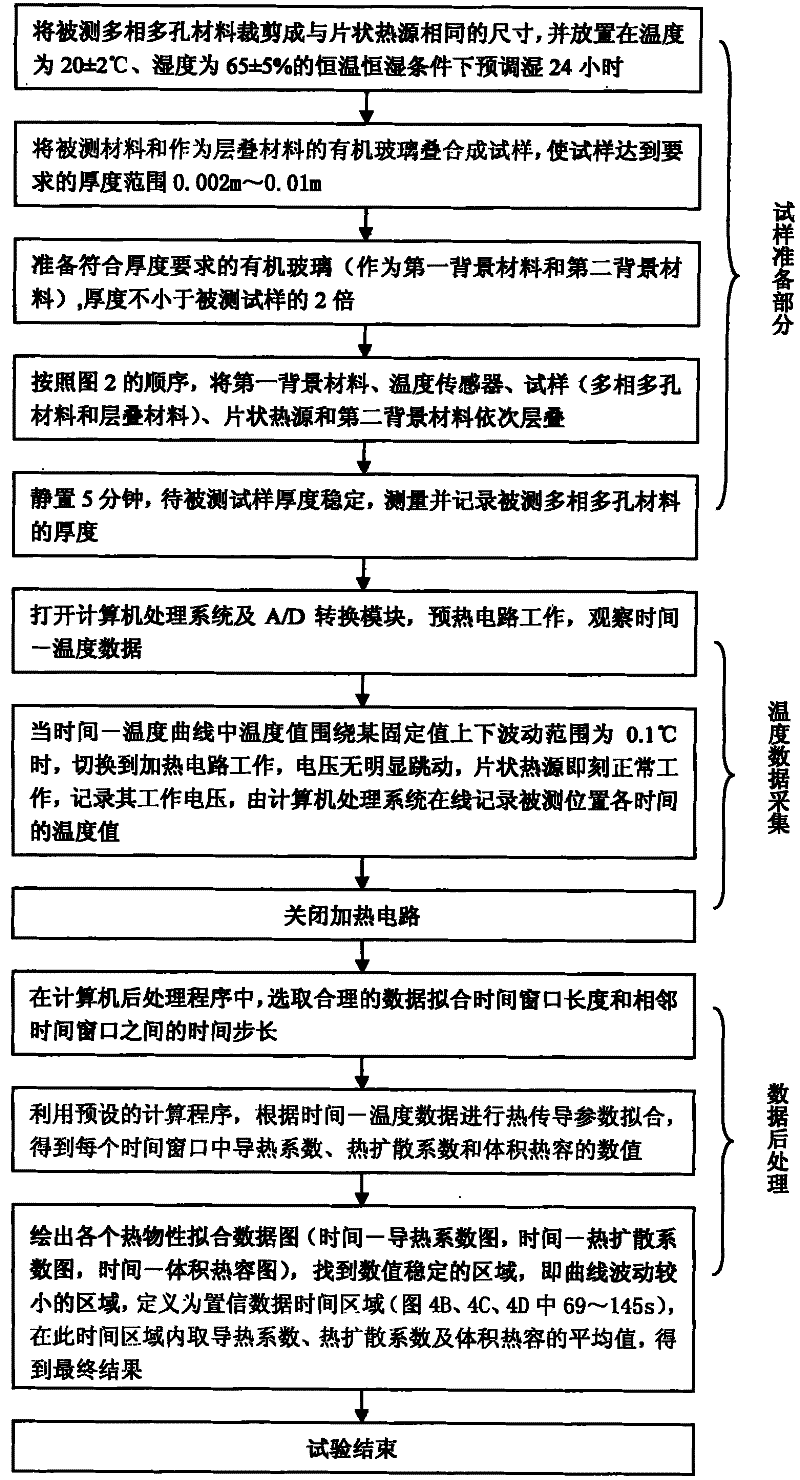Unsteady-state measuring device and method of heat conduction performance of multi-phase porous material
A technology of porous materials and measuring devices, applied in the direction of thermal development of materials, thermal conductivity of materials, etc., can solve the problems of distortion of test results, long test time, inability to measure other indicators, etc., so as to avoid contact thermal resistance and overcome thermal convection.
- Summary
- Abstract
- Description
- Claims
- Application Information
AI Technical Summary
Problems solved by technology
Method used
Image
Examples
Embodiment
[0033] like figure 1 Shown is a schematic diagram of an unsteady-state measurement device for the thermal conductivity of a multiphase porous material provided by the present invention. An extremely thin metal flexible electric heating film (0.1×0.1×0.0002m in size) is selected as the sheet heat source 7, which can release a constant heat flux to the tested material. Select plexiglass (thermal conductivity 0.187W / mk, thermal diffusivity 9.00×10 -8 m 2 / s, volumetric heat capacity 2.08×10 6 J / m 3 k) As laminated materials (thickness range of laminated material and porous material is 0.002m-0.01m), first background material 4 and second background material 8 (thickness is 0.1m). Select a PT100 platinum resistor as the temperature sensor 5 and place it in the central groove of the first background material 4. The size of the groove should be the same as that of the platinum resistor (fix the platinum resistor with thermal silica gel), to ensure that it is compatible with the ...
PUM
| Property | Measurement | Unit |
|---|---|---|
| thickness | aaaaa | aaaaa |
| size | aaaaa | aaaaa |
| electrical resistance | aaaaa | aaaaa |
Abstract
Description
Claims
Application Information
 Login to View More
Login to View More - R&D
- Intellectual Property
- Life Sciences
- Materials
- Tech Scout
- Unparalleled Data Quality
- Higher Quality Content
- 60% Fewer Hallucinations
Browse by: Latest US Patents, China's latest patents, Technical Efficacy Thesaurus, Application Domain, Technology Topic, Popular Technical Reports.
© 2025 PatSnap. All rights reserved.Legal|Privacy policy|Modern Slavery Act Transparency Statement|Sitemap|About US| Contact US: help@patsnap.com



